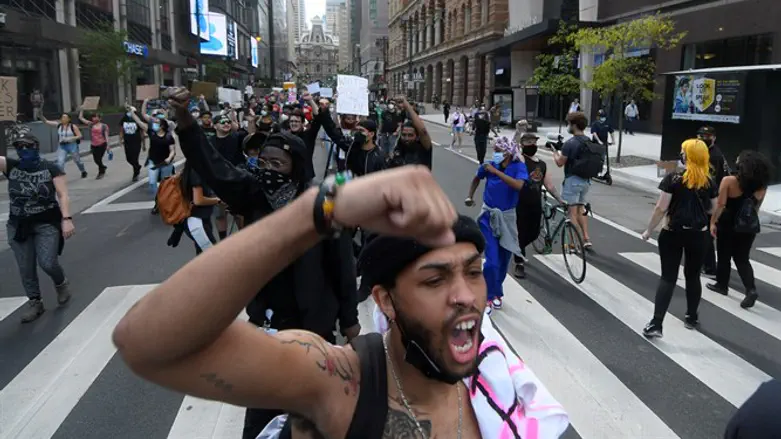
The damage to image and reputation is the biggest loss the US has suffered in a summer of rioting, recent events and the assault on Capitol Hill by some supporters of President Donald Trump. This incident was denounced and rejected by the majority of American politicians, Democrats and Republicans.
Former President George W. Bush described the scene as a “sickening and heartbreaking sight.” “This is how election results are disputed in a banana republic — not our democratic republic,” Bush said in a statement quoted by CNN.
“I am appalled by the reckless behavior of some political leaders since the election and by the lack of respect shown today for our institutions, our traditions, and our law enforcement,” Bush warned in his statement about how the rebellion would seriously damage the nation and its reputation.
He called on people to “Let the officials elected by the people fulfill their duties and represent our voices in peace and safety.” Former US President Barack Obama accused President Donald Trump of being responsible for the events in Congress, saying it was “shame [but not a] surprise.” Prominent Republican officials, for their part, criticized what happened on Capitol Hill.
Rep. Mike Gallagher said the scenes were “Banana Republic” type. Sen. Ben Sasse said, “Lies have consequences. This violence was the inevitable” because of the division fueled by the president. Sen. Mitt Romney, scenes are “insurrection, incited by President of US.” The loss of the US is born with a truth that everyone knows.
The so-called “American values” are an integral part of US power and prestige. They have enabled it to emerge as the top superpower in today’s world order. Freedom and democracy are at the heart of these values. They underline the very essence of the model of liberal democracy that Americans have prided themselves on since World War II.
US soft power rests on many pillars, including freedom and democracy, and all of these pillars are part of the so-called American dream. The American model is primarily based on democratic governance. It guarantees freedom for all, the rule of law, the sovereignty of the people and the electoral system.
This has become a source of discord and division among components of the American people after the current president’s attack. Trump made dozens of accusations that the elections did not reflect the will of the American people, before the scene of great division became the trademark US media show the world. The problem is not the controversy over the results of the recent presidential election.
Rather, the issue has been how the controversy was handled, how it was presented to the American public, and how it was used to circumvent those results in favour of Republican President Donald Trump.The result has been profound political turmoil that will not end with Congress ratifying these results.
In fact, tens of millions of voters supported a president who assures them day and night that their votes have been “stolen” in an alleged Democratic Party conspiracy. So, the inauguration of President-elect Joe Biden will not end the turmoil. It will not heal its effects.
It will only deal with procedural aspects so that the institutional dynamic can continue. But the most difficult challenge remains to repair heavy losses at the global level. It will be necessary to restore the image of American democracy in the world’s eyes.
More than that, the deep rifts that have affected American society as a result of this unprecedented political conflict must surely be addressed. Rethinking the American democracy model does not only mean revisiting the origins, philosophy and operational mechanisms of the model. Rather, it means a parallel skepticism of all its institutional implications.
It is above all about the US foreign policy that makes Washington the guarantor of freedoms, democracy and human rights in the world. Such a policy is based on reports that classify the practices and attitudes of states, a classification with far-reaching implications.
The ranking is of great relevance, whether for US relations with these countries or between countries and between states and specialized international organizations. Most consider US reports and assessments on these subjects to be a compelling yardstick.
Finally, the US Congress endorsed President Biden’s victory in the presidency, turning the page on Trump. However, the loss for the US remains serious. The strength of the model is weakening. Its bases are weakening. It is hard to defend events on Capitol Hill that are reminiscent of the “banana republics,” as many American politicians have decried.
President-elect Joe Biden’s mission to rebuild trust and erase the deep scars that have tarnished his country’s reputation and position in the world can be daunting. It requires a bipartisan effort, both Democratic and Republican, as well as on the part of all American political, media and academic circles.
Dr. Salem AlKetbi UAE political analyst and former Federal National Council candidate